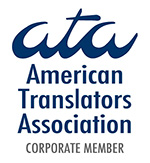International Payments and Fees: How To Keep a Bigger Portion of Your Earnings
The career of a freelance linguist can sound like a dream come true. You set your own hours, work with international clients and take advantage of the currency exchange rate… Unfortunately, the dream can be less lucrative if you don’t keep an eye on the international payment fees. And those can quickly eat up a significant part of your income!
The Key to Cutting Down Those Hefty Fees is Flexibility
How to pay less and keep more? The golden rule is to navigate between different payment gateways. This is because there is no universal method that is free (or affordable) in each and every situation. Let’s go over the most popular methods and see when they can benefit your business, and when using them is a waste of money and time.
Wire Transfer
In the era of PayPal, Skrill and Transferwise, bank transfers seem a bit old school. But, that doesn’t mean you shouldn’t consider them.
Advantages: Safe and reliable – banks fiercely protect their reputation, and, as a result, your money.
Disadvantages: High flat fees which could sometimes exceed the payment value.
When to use: High-value transfers that can offset the flat fee. Also, when your client has an account with the same bank. Some banks charge very little for international transfers assuming both accounts are in the same currency. Meridian recommends using wire transfers for any payment over $400, but you might consider it for smaller payments as well, depending on your own banks fees.
Don’t forget – when accepting payments from abroad, “intermediary banks” will sometimes be involved, and can sometimes charge a fee. This is why your bank can say that they do not charge for incoming payments, even when you notice an extra fee in your records.
PayPal and Stripe
The king of online transfers and its trendy friend
Advantages: These are ideal for small payments. While no one doubts the extreme popularity of PayPal, Stripe is still gaining traction – but it’s already widely accepted by many businesses. Both can be connected to an accounting software such as Freshbooks and Xero so that your clients can even pay you by Credit Card, while you accept the payments in Paypal or Xero!
Disadvantages: Fees as a percentage of the payment ($0.30 flat + 2.9%), making it a bad choice for large payments, and there can also be high currency conversion costs. Also, some countries do not allow Paypal (for example Turkey) and other countries have restrictions on withdrawals from Paypal accounts.
When to use: To accept small payments (since the fees are a percentage) and to accept credit card payments. Also, because the transfer is immediate, this is a good option when you need money “now”.
Payoneer
Paypal’s lesser-known (and lesser-used) little brother.
Advantages: There are no fees for transfers between Payoneer customers or online shopping using the Payoneer card. You can use the card to withdraw money from an ATM. Xero accounting software integration.
Disadvantages: The card costs $29.95 per year, ATM withdrawal fee is $3.15.
When to use: When dealing with customers who have Payoneer. When you travel/want to withdraw the money directly from an ATM, pay using your card online.
*Unfortunately at this time, Meridian Linguistics does not offer payments by Payoneer.
Transferwise (+Borderless account)
Send, receive and manage multiple currencies – all in one account. The best online money transfer service?
Advantages: Over 40 currency balances. Low conversion rates and payment fees (most payments are free).
Disadvantages: A transfer takes 2 to 3 days. Not all currencies and countries are accepted. Some currencies, such as USD, have transfer limits. Restrictions can be very confusing and vary from country to country (in some cases you can open a Transferwise account but you are restricted from receiving international payments)
When to use: If you don’t mind waiting and your customer doesn’t mind making a troublesome transfer (compared to a quick PayPal or Skrill payment).
*Note: because of the difficulties our vendors have experienced in getting Transferwise accounts to work, we do not offer Transferwise payments at this time.
Cryptocurrencies
The virtual money everyone is talking about – and some are even accepting it for their services!
Advantages: Some of them are anonymous. Secure if you protect your online wallet. Low fees (depending on the currency).
Disadvantages: Their value fluctuates wildly (which can be a benefit if it goes up after you receive it). Not many customers use them.
When to use: Cryptocurrencies are great if you want secure, anonymous (mostly) transactions.
Western Union
Between 2004 and 2015, there were over 550,000 complaints about fraud with the use of WU. While not all of them were about employment scams, just don’t use it. If anyone’s offering to pay you using Western Union, they’re probably trying to scam you.
We’ve added it as a warning. The company is a reliable way of sending money between relatives and friends, not for doing business with clients a thousand miles away.
How to Keep an Eye on All that?
Navigating between all those payment gateways can be confusing, but if you just remember to ask for large payments by bank wire and small payments by Paypal, you’re usually on the right track towards minimizing your fees! Good luck, and go get paid!
By Jacek Piotrowski
Copywriter & online marketer specializing in sales funnels. As a freelancer, I have worked for dozens of international clients what allowed me to discover the best payment tools for different kinds of transactions.












Leave A Comment